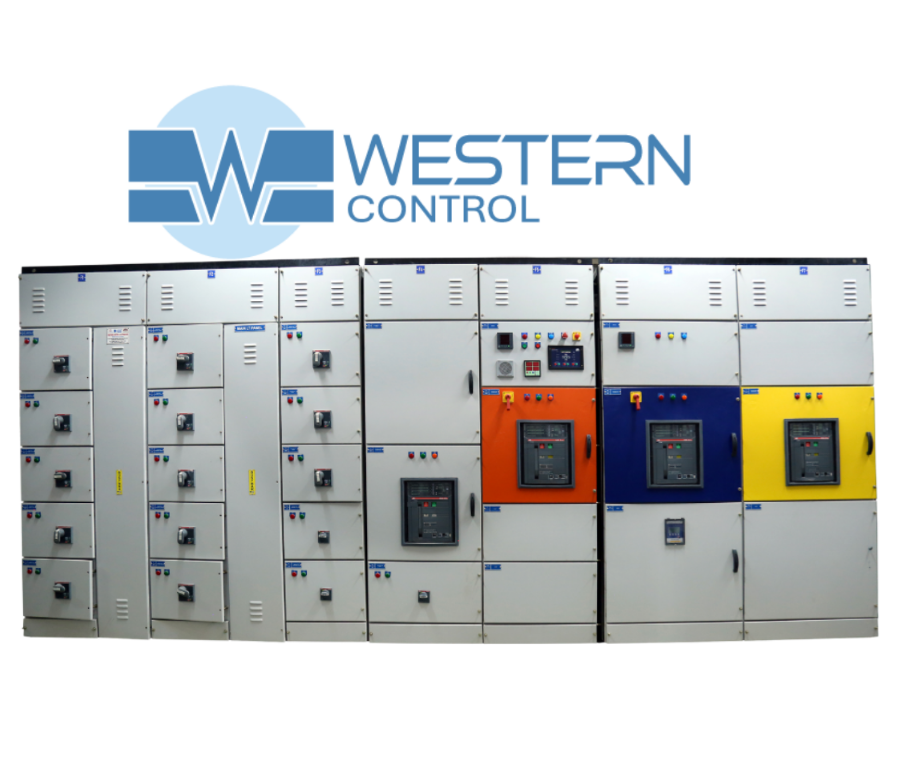Power Control Center Panels: Ensuring Reliable Power Distribution for Industries

In the fast-paced world of industrial operations, uninterrupted power supply and efficient load management are non-negotiable. Factories, plants, and large facilities run on complex machinery that requires consistent and safe electricity distribution. This is where Power Control Center Panels come into play. Acting as the backbone of electrical distribution systems, these panels not only control the flow of electricity but also protect equipment from fluctuations, overloads, and short circuits.
What are Power Control Center Panels?
Power Control Center Panels, also called PCC Panels, are electrical distribution boards designed to regulate and manage electrical power in industrial and commercial facilities. Typically installed near the main power supply source, these panels distribute electricity to different sections of a factory, ensuring balanced load management and safety.
They consist of various components, including air circuit breakers (ACBs), molded case circuit breakers (MCCBs), bus bars, and monitoring meters. Together, these elements ensure proper current flow, fault detection, and the safety of high-power electrical systems.
Importance of Power Control Center Panels in Industries
In industries where downtime can lead to huge losses, PCC Panels play an integral role in maintaining smooth operations. Some key reasons they are indispensable include:
-
Efficient Load Management
PCC Panels distribute electricity uniformly across machines, preventing overload and ensuring balanced power usage. -
Enhanced Safety
These panels are designed with protection systems such as relays and circuit breakers that safeguard equipment and personnel against electrical faults. -
Centralized Control
By centralizing power distribution, operators can monitor, control, and troubleshoot power issues more effectively. -
Durability and Reliability
Built with high-quality materials, PCC Panels are engineered to withstand heavy industrial loads, harsh conditions, and continuous operations.
Features of Modern Power Control Center Panels
Technological advancements have enhanced the functionality of PCC Panels. Modern panels now come equipped with:
-
Digital meters for real-time monitoring
-
Automated tripping mechanisms for overload protection
-
Remote operation and monitoring systems
-
Energy-efficient designs to reduce wastage
-
Modular construction for easy customization
These features make them highly adaptable to industries such as manufacturing, chemical processing, pharmaceuticals, steel, and textiles.
Applications of Power Control Center Panels
The versatility of PCC Panels allows them to be deployed across multiple industries. Common applications include:
-
Manufacturing Plants – To manage heavy machinery operations
-
Steel and Cement Plants – For handling high-voltage requirements
-
Pharmaceutical Industries – To ensure uninterrupted production processes
-
Data Centers – To provide reliable power to servers and IT equipment
-
Hospitals – For ensuring continuous operation of life-saving equipment
By ensuring reliability and safety, PCC Panels enable industries to maintain productivity without compromising on power quality.
Advantages of Power Control Center Panels
-
Cost Efficiency – Prevents machinery breakdown, reducing maintenance costs.
-
Improved Productivity – Ensures uninterrupted power, leading to smooth workflows.
-
High Customization – Can be designed based on the specific electrical requirements of an industry.
-
Long-Term Investment – Durable design ensures performance and reliability for years.
The Role of Power Control Center Panels in Energy Efficiency
Energy efficiency is a top priority for industries today. PCC Panels are designed to reduce electrical wastage by providing accurate load management. By avoiding overload conditions and monitoring power consumption, they contribute significantly to reducing overall energy costs.
In addition, with integration options for automation systems, industries can remotely monitor and analyze energy usage patterns. This allows for informed decisions regarding energy conservation and equipment optimization.
Middle Placement (Requested Keyword Integration)
Modern industries increasingly rely on Power Control Center Panels to achieve efficiency, safety, and centralized monitoring. Whether it’s a steel plant requiring heavy-duty panels or a pharmaceutical facility demanding uninterrupted power, these systems are tailored to fit unique industrial needs. Manufacturers now design Power Control Center Panels with enhanced features like SCADA integration, ensuring industries can monitor performance data in real-time and minimize downtime.
Future of Power Control Center Panels
With rapid technological progress, PCC Panels are becoming smarter and more compact. Integration with IoT (Internet of Things) and cloud-based monitoring systems is revolutionizing how industries manage their power systems. Predictive maintenance, data analytics, and AI-driven fault detection are paving the way for highly reliable and intelligent power control solutions.
These innovations not only improve operational efficiency but also align with global sustainability goals by promoting energy conservation.
Conclusion
In conclusion, Power Control Center Panels are the heart of industrial power distribution systems. They provide centralized control, ensure operational safety, and support energy-efficient operations. As industries continue to modernize, the demand for advanced PCC Panels will only grow.
Additionally, the integration of specialized systems such as Instrumentation Panels enhances monitoring capabilities and ensures precise measurement of electrical parameters. By combining Instrumentation Panels with PCC Panels, industries can achieve higher efficiency, improved safety, and better decision-making.
- Art
- Causes
- Crafts
- Dance
- Drinks
- Film
- Fitness
- Food
- Games
- Gardening
- Health
- Home
- Literature
- Music
- Networking
- Other
- Party
- Religion
- Shopping
- Sports
- Theater
- Wellness


